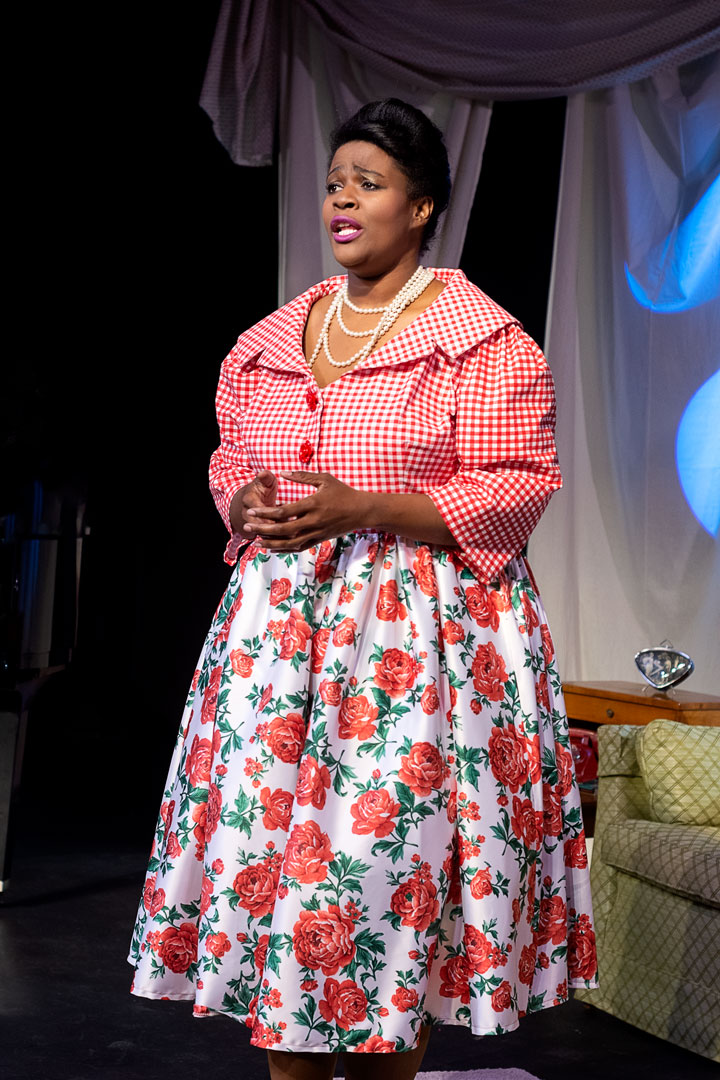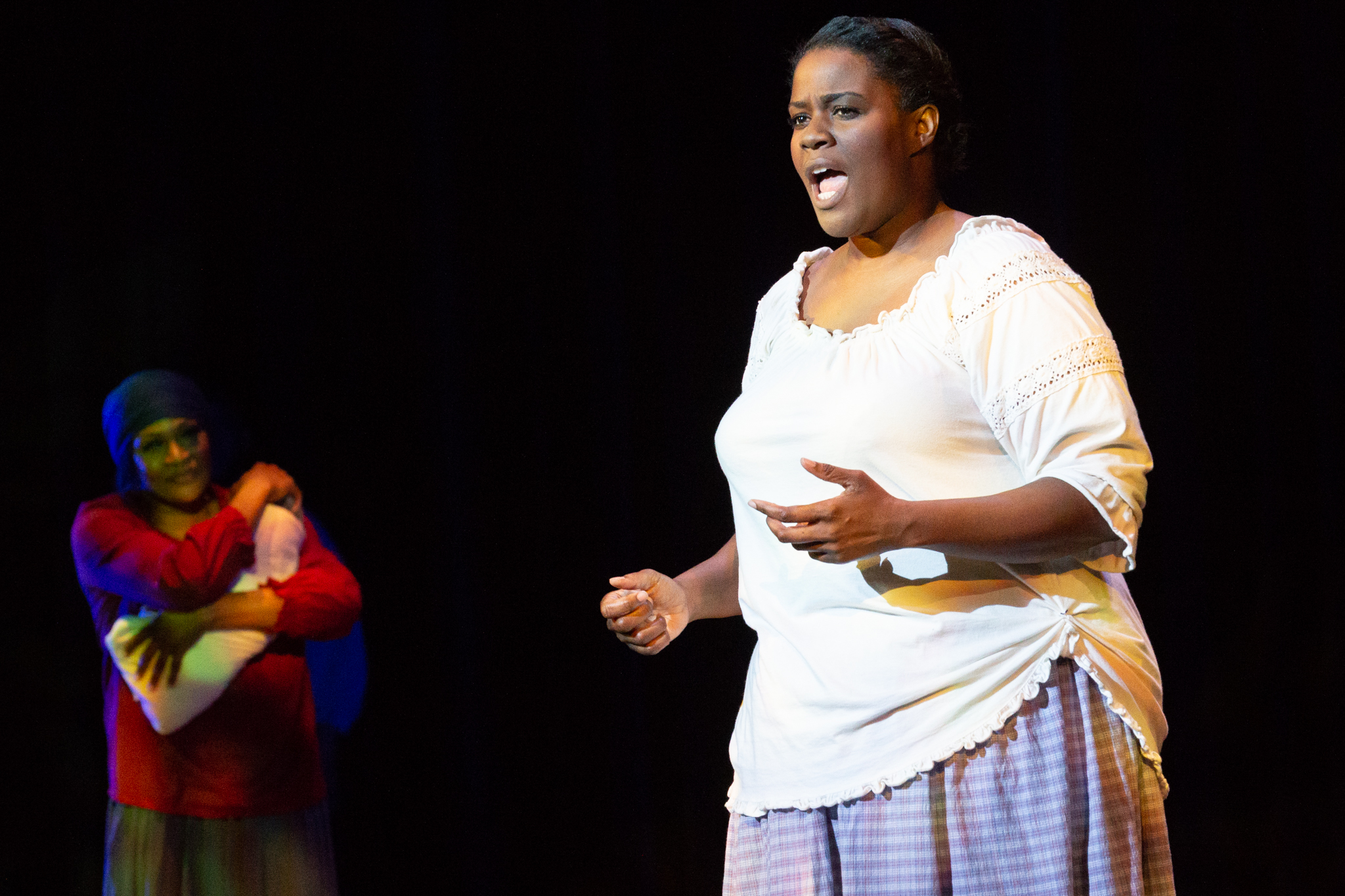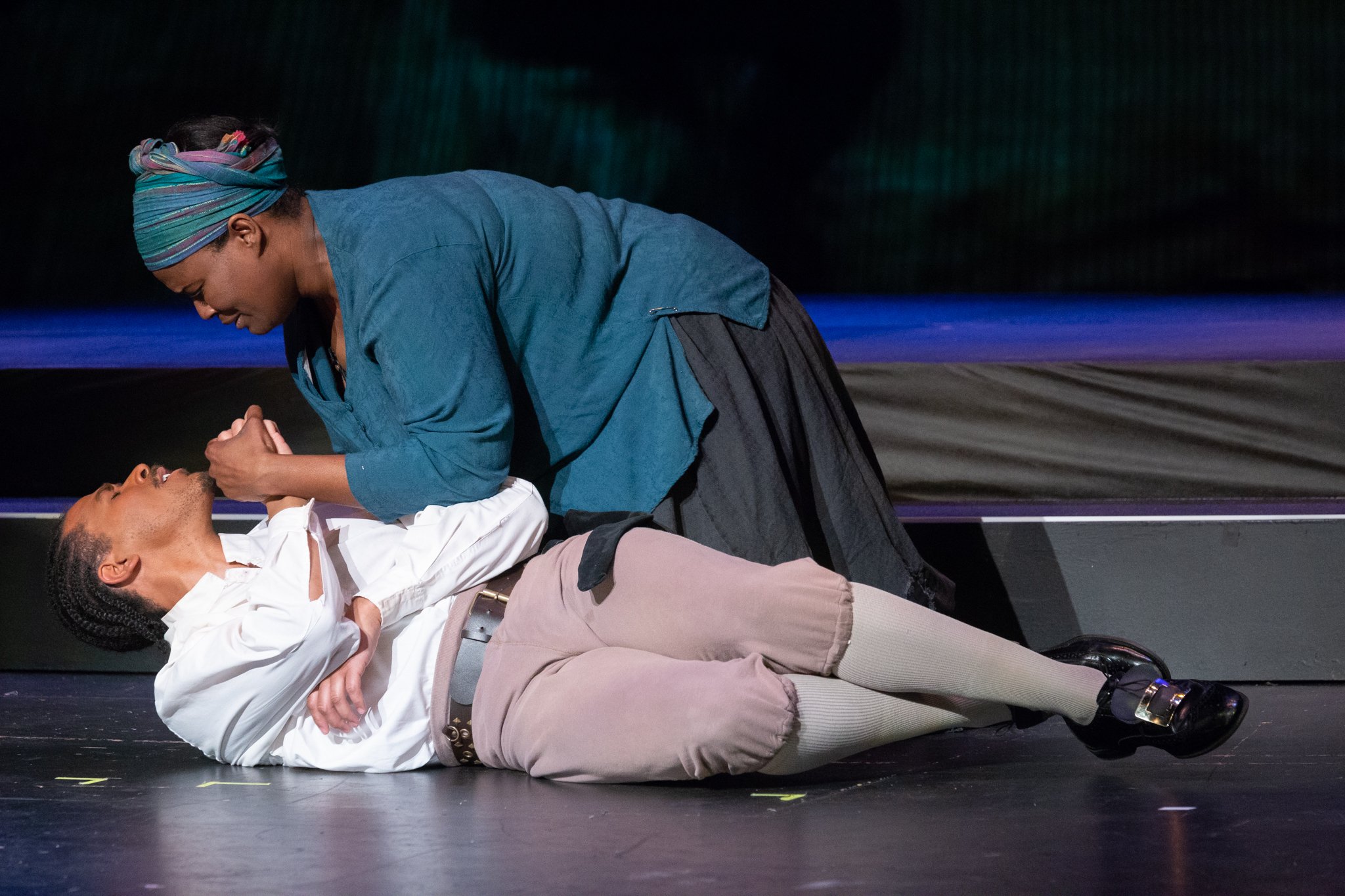Tell us about your journey – how did you come to be an opera singer?
My journey began as an undergrad at the University of Central Arkansas. As a sophomore, I was given my 1st two arias: “O mio Fernando” by Gaetano Donizetti and “When I am laid in earth” by Henry Purcell. My teacher, Dr. Robert Holden, thought I should enter the concerto competition at UCA. I was SO nervous. Imagine my surprise when I found out I had won! The prize was singing two arias with the Conway Symphony Orchestra. I was super excited – singing that style of music in front of a huge audience with a riveting orchestra was a real thrill for me. It made me want to keep pursuing it more. I went on to compete at the Metropolitan Opera National Council state and district auditions, then sang my first opera at Wildwood – I was in the chorus for Amahl and the Night Visitors. Two of the Highlights of my journey as an opera singer would be playing the lead role of Azelia in Troubled Island, by the prestigious Black composer, William Grant Still and traveling to Shanghai, China to perform in Gianni Schicchi. I have had so many rewarding opportunities in opera. This art form really is magnificent, and I always look forward to the next opportunity!

Golden in Mavra (2018)
How has your Black identity influenced your career?
My blackness has been influential on my career. I don’t have the luxury of assuming that every opera house will want the leading female roles to be played by Black women. Personally (and I know I’m not the only Black woman who is forced to do this) once I know the information about the opera house, what opera they’re doing, and have read the guidelines for the role, I then have to think: would they actually be willing to let a Black woman play this role?” Unfortunately opera hasn’t always been welcoming or accommodating to Black singers. Theater is the same way. including musical theatre. Things have definitely gotten a lot better since the early years, but unfortunately, racial typecasting in the arts is a very real issue.
I will say that my blackness has had a positive influence on my career when it comes to our black youth. There are so many that don’t know the many famous Black faces in opera (Leontyne Price, Jessye Norman, Martina Arroyo, Simon Estes, Lawrence Brownlee etc.) just yet. I know from personal experience that when they see Black people performing in opera locally, it makes all the difference. They realize that they can be in opera too, and even make a career out of it. Representation really does matter.
What is your favorite role that you have sung?
I wouldn’t say I have a favorite role, because I have enjoyed each role that I have played. It was refreshing to play the comedic role of Zita in Gianni Schicchi. Zita is the cousin to the rich and deceased Buoso Donati. She schemes with her greedy family to ensure they would be the only ones to inherit Buoso’s fortune. I have sung a lot of roles in very dramatic operas before, so it was nice to let loose, laugh a bit and bring this funny character to life.

Golden in Troubled Island (2018)

Golden with Jensen-McDaniel in Troubled Island (2018)
What do you do when you aren’t on stage?
When I’m not on stage, I am a Theatre director and Drama Teacher. It’s extremely rewarding to direct and see my vision for the show come to life on stage through my students. As a Drama teacher, I like using improv to mold and shape these future actors. There are no limits to their creativity!
Why should Arkansans care about opera?
People should care about Opera because it combines soul-stirring drama, the hearty laugh of the comedic narrative, stagecraft, music and libretto, along with the wide range and the extremely expressive ability of the human voice. Opera is great at invoking pure emotion, and the stories are timeless.
I know opera has been seen as an art form more geared towards adults, but it’s also very kid-friendly. Take for example the opera Hansel and Gretel by Engelbert Humperdinck or L’Enfant at loss sortilèges by Maurice Ravel. People should encourage taking opera into the schools so that children can experience different art forms and different types of music. Children need to see that opera is another great outlet for self-expression.
People should also care about Black opera, because there are so many Black Opera composers and their Operas are rarely performed because they don’t have the long history or the popularity of more well-known works like The Magic Flute or La Traviata. It is vital that we have Black representation and tell Black stories.

